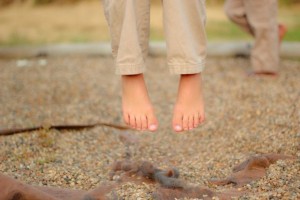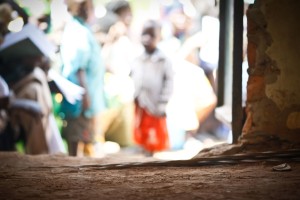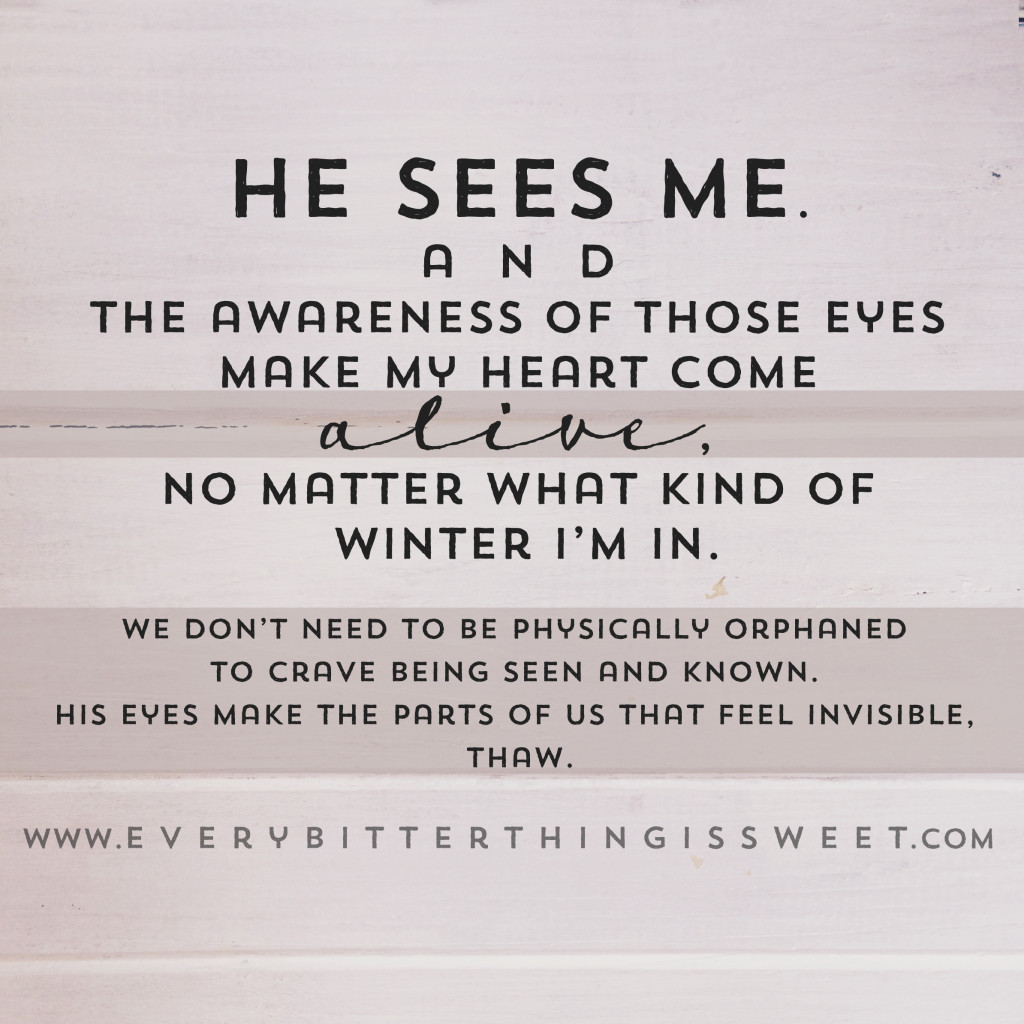She wore fur-lined boots with her t-shirt and shorts on this 100-degree summer day.
She filed in alongside her schoolmates — who were also house-and-home mates — under the florescent lights of this pseudo-gymnasium room with cement walls, where we met.
Every month the women from my Bible study pile into cars and drive, just few minutes around the corner, to an institution that dozens of children call home. This particular night there were only 8 or so girls circling up to sing and read scripture and talk about God with us. The child in winter boots was taller than the other girls and clamped her lips around a sucker while the rest of us sang.
Little girls flailed their arms in free-lance motions to the words of worship songs they’d heard from groups like ours before. They laughed at themselves and sang off-key, just like my girls do at home. The child in winter boots just watched, not skeptical, but yet unengaged.
“I’m new here,” a milky-skinned girl whose lips looked painted perfect had declared, as she came into the room. During the singing she belted “Your love never fails, it never gives up, it never runs out on me” as if it was her anthem. This porcelain doll perhaps landed herself here because her dad ran out or her mom gave up — because their love failed her.

When will a girl like this question lyrics like that against her own story? I wondered.
And like most weeks I’m there, my throat started to close. The dissonance between the happy songs about God and the brokenness of the story that each of these girls inherited can be suffocating, without perspective.
The singing continued while the girl in winter boots licked the stick on her sucker. “He loves us, oh how He loves us,” sang little ones who had just finished their first day of school. Their backpacks were full of papers Daddy wouldn’t check and they wore cobbled-together outfits, hand-me-downs from benevolent strangers, that Mom didn’t pick out. They might go to bed that night without anyone asking them about this monumental first day.
Did any eye witness their firsts?
My throat was tighter, still.
These girls are invisible in our world.
I’ve never spent a night in an institution that I had to call home. I’ve never worn someone else’s shoes that were too tight because my parents couldn’t afford my own. My mom wouldn’t have let me wear fur-lined boots in the summer. But something about these girls and their broken story affected something in me. I know the terribly lonely feeling of singing happy songs about God on the outside and where He really is on the inside of my story.
At that time, my friend leading worship, changed the lyrics and led the rest of us. She began to sing this: “He sees us, oh how He sees us.”
One of those girls in that room would learn to read this year, with only a case worker to show off to. But He’d see. Another would write poetry in her journal at night, alone. And His eyes would dance over her. The girl in boots had braces. This year she might run her tongue over smooth teeth, newly aligned, for the first time in years. He’d count down the days with her until her braces were off.
He sees them, these invisibles.
Little voices sang words I knew would — could — one day melt the hard ice around their story because they were the very words that melted mine.
The orphan-girl’s story is mine, too. And it’s yours.
He sees me. And the awareness of those eyes make my heart come alive, no matter what kind of winter I’m in.
My friend moved us to a final chorus: “He knows us, oh, how He knows us.” These sprigs — they sung what could be their lifeline. They sung words that would be their way out, one day. They sung words that had pointed to my way out and are continuing to work their way inside of my cold, wintered parts.
We don’t need to be physically orphaned to crave being seen and known. His eyes make the parts of us that feel invisible, thaw.
The story of the invisibles is mine, too. And it’s yours.
Our call as a church to care for the invisibles is, in part, because their lives tell a story that is a more visible expression of what’s buried in our own hearts. We see ourselves in them, when we take a long hard look at what the world dismisses.
“Was God mad at me? Is that why my Mommy died?” says my formerly-orphaned daughter. They openly ask the questions that the rest of us — who had moms packing our lunches and dads asking us about the first day of school — spend a lifetime burying because we don’t know what we’ll get when we bring our broken hearts, raw, before God.
I wear carefully-selected shoes that fit and a belt and bangles that go with my outfit. I pull it together. But God reminds me, through these invisibles, that I have sophisticated ways of avoiding asking Him to come and heal the parts of my history, all-be-them small compared to hers, that made me feel invisible.
The invitation He has given us — the church — to care for the orphan and the widow is an invitation to a mutual ministry. We need to see these children around us.
But it doesn’t stop there.
The invisibles have something for you. And for me.
Photos compliments of Mandie Joy.





